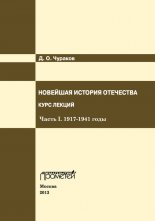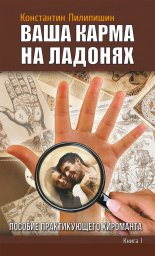Япония. Национальная идентичность и внешняя политика. Россия как Другое Японии Бух Александр

Sugiura, S. (1995) «Kakko o motanai roshiajin» to «mirai o sakidori shita roshiajin» («Russians without a past» and «Russians that have reached the future before the rest». IN ITO, A. (Ed.) Nashonaru aidentiti o megutte (Exploring National Identity). Sapporo, Hokkaido University.
Suzuki, T. ([1971] 1979) Dare mo kakanakatta soren (The Soviet Union that nobody wrote about), Tokyo, Bungei shunj.
Takagaki, T. (2002) Hokut ajia keizai no shinhatten ni mukete (Towards new economic development in Northeast Asian economy). Roshia t beki chsa gepp 47(1):1–13.
Takahashi, H. (2005) Trade between Japan and Russia in 2004. Roshia too boeki chosa geppo, 50:1–13.
Takahashi, S. (1999) Kychteki anzenhosh gainen no saiteigi to ajiataiheiy «chiiki» no anzenhosh (Redefining of cooperative security and regional security in the Asia-Pacific). NIDS Security Studies, 2:29–46.
Takahashi, T. (1982) Ainu shikan kakuritsu no tame no josh (An introductory chapter towards establishment of Ainu view of history). Chuo Kron, 97, 290–302.
Takakura, S. (1942) Hokuhen, Kaitaku, Ainu (Northern Frontier, Pioneering, Ainu), Tokyo, Takemura shobo.
– (1960) Chishima gaishi (Outline of the history of Chishima), Tokyo, Nanpo doho engokai.
– (1966) Ainu kenkyu (Ainu studies), Hokkaido, Hokkaido University.
Takano, Y. (1962) Hoppryodo no hri (The legal aspects of the Northern Territories) IN TAOKA, R. ET AL. (Eds) Hopprydo no chii (The status of the Northern Territories). Tokyo, Nanp dh engokai.
– (1986) Kokusaiho kara mita hoppo ryodo (Northern Territories seen from International Law). Tokyo, Iwanami shoten.
Takeo, H. (1941) Tatakafu soren no genjitsu (The reality of the Soviet Union at war), Tokyo, Kasumigaseki shob.
Tanaka, A. (1997) Anzen hosh (National Security), Tokyo, Yomiuri Shimbunsha.
Tanba, M. (1984) Nihyaku pasento no anzen hosho o motomeru kuni: soren senryaku to nihon no taio (A country that needs 200 % security gurantee: Soviet policy and Japan’s response), Tokyo, Ningen no kagakusha.
– (2000) Fukuganteki/jusoteki nichiro kankei kochiku no tameni (Towards multilayered and multidimensional Japan-Russia relations). Gaiko Forum, 36–41.
– (2007) Poochin no roshia ga tsukisusumu aratanaru soren no tanjou (Putin’s Russia is plunging towards birth of new Soviet Union). Chuo Kouron, 122, 232–240.
Tanihata, R. Shimizu, H. (1980) Nihonjin to roshiajin (Japanese and Russians). Gekkan minshuto, 325, 88–96.
Tanizawa, E. (1996) Shiba Rytar, Tokyo, PHP.
– (1997) Shiba Rytar no okurimono (The gift of Shiba Rytar), Tokyo, PHP.
Tantoku, S. (1949) Atarashii soren: yokuryu seiktsu o tooshite (The «new Soviet Union» through the detention experience). Hyron, 29, 18–33.
Taoka, R. et al. (Eds) (1962) Hopprydo no chii (The status of the Northern Territories), Tokyo, Nanp dh engokai.
Tatebayashi, C. (1969) Aichi hso, hbei to hopprydo, Okinawa (Aichi’s visits to USSR and the US and Northern Territories, Okinawa). Gekkan shakait, 152:153–156.
Terashima, M. (1939) Hko Chishima (The treasure box of Chishima), Tokyo, Nihonkronsha.
Togawa, T. (1993) Nichiro/nisso kankei no tokuch (The peculiarities of Japan’s relations with Russia/USSR). IN Nichiro 200 nen (200 years of Japan-Russia Relations), Tokyo, Sairysha.
Tog, K. (2007) Hopprydo Ksh Hiroku (Confidential files of the Northern Territories negotiations), Tokyo, Shinchsha.
Tokita, H. (2004) Gendai ni ikiru nichiro sens (Living the Russo-Japanese War in modern days). Yomiuri Shimbun 28 August 2004:11. Tokyo.
Tomaru, H. (Ed.) (1993) Shinbun hensei-Hopprydo 1947–1979 (Northern Territories in newspapers 1947–1979), Tokyo, Ohzorasha.
Tsurumi, S. (2001) Shiba shikan ni furete (Some thoughts about Shiba’s view of history). IN OSANAI, M., TSURUMI, S., DEKUNE, T. HAND, K. (Eds.) Shiba Rytaro no rygi (The style of Shiba Rytar). Tokyo, NHK.
Uchida, K. (2006) Nichiro kankei o miru gakusei no shiten (Japan-Russia relations seen through students’ eyes). Gaik Forum,220: 63–69.
Umehara, T. (1982) Nihongo to ainugo wa igengo nanoka (Are Japanese and Ainu languages really different). Ch Kron, 97(13), 254–274.
– (1984) Nihon kodai no metafijikku (The metaphysics of ancient Japan). Gendai Shiso, 12, 30–51.
– (2001) Naze nihonjin wa shiba bungaku o aishitaka (Why do the Japanese love Shiba‘s literature). IN NISHIGUCHI, T. (Ed.) Shiba Ryotaro. Tokyo, Kawade Shobo Shinsha.
Umemori, N. (2005) Kiku to kenp (The Chrysanthemum and the Constitution). Intelligence, 6, 4–17.
– (2006) Hens suru touchi (Variations in governance). IN SAKAI, T. (Ed.) ‘Teikoku’ nihon no gakuchi (The knowledge of Japan’s «Empire»). Tokyo, Iwanami.
– (2006a) Uta ga horobiru toki (When the song perishes). Unpublished manuscript,Waseda University.
Ushiba, A. (1993) Roshia shienron e no shitsumonj (Questioning the assistance to Russia). Voice 186:58–83.
Wada, H. (1992) Ima koso nihon ga rydo seisaku o tenkan suru toki (now is the right time for Japan to change its territorial policy). Sekai shh 73(39):10–15.
– (1993) Kuzureru kuni tsunagaru kuni (Disintegrating states, connecting states), Tokyo, Daisanshokan.
– (1999) Hopporyodo mondai: rekishi to mirai (The Northern Territories Problem: History and Future), Tokyo, Asahi Shimbunsha.
– (2002) Sengo nihon heiwashugi no genten (The Origins of Japan’s Post-war Pacifism). Shis 944, 5–26.
Wada, T. (1966) Soren no seijishakai no henb (Transfiguration of Soviet politics and society). Seisaku geppo, 122, 154–177.
Washida, K. (2001) Shiba Rytar to rekishikan (Shiba Rytar and a view of history). IN NISHIGUCHI, T. (Ed.) Shiba Rytar. Tokyo, Kawade Shob Shinsha.
Watanabe, A. (1985) Sengo nihon no taigai seisaku (The Japanese post-war foiregn policy), Tokyo, Yuhaikaku.
Watanabe, M. (1947) Soren tokuha gonen (Five years reporting from the Soviet Union), Tokyo, Shanghai shob.
– (1948) Soren no kazoku, kekkon, sono horitsu (The Soviet family, marriage and the related laws). Horitsu shinpo, 749, 8–10.
Yamamoto, H. (1939) Soren renpo shominzoku no bunpu jky (The distribution of nationalities in the Soviet Union) Dairen, Minami manshu tetsud kabushikigaisha.
Yamamoto, E. (2008) Hopprydo mondai to «hopp yont sgo kkan» (translated by the author as The Northern Territories Issue and Mutual Interchange between Russians and Japanese in the Northern Territories). Ty Eiwa daigakuin kiy, 4, 67–80.
Yamamoto, K. (Ed.) (1992) Ainu Moshiri (The Ainu Land), Tokyo, Ochanomizu shob.
Yamauchi, M. (1937) Gaik (Foreign Policy). IN NAKAJIMA, S. (Ed.) Soren seijikeizai jittai chosa chukan hokoku (Interim report on the actual conditions of Soviet political economy). Dairen, Minami manshu tetsudo kabushiki gaisha.
Yamazaki, M. Sekikawa, N. (2004) Jiy na meiji no griteki nihonjin (The rational Japanese of the free Meiji period). Ch kron 119(2):46–60.
Yasumaru, Y. (2004) Gendai nihon shisoron (Modern Japan’s Ideology), Tokyo, Iwanami shoten.
Yokote, S. (Ed.) (2004) Higashi ajia no roshia (Russia of East Asia), Tokyo, Keio University Press.
Yomiuri Shimbunsha (2002) Nihon no seron (Japan’s public opinion), Tokyo, Kbund.
Yoshida, S. (1962) Hopprydo, Tokyo, Jiji shinsho.
Yoshida, Y. (1994) Nihonjin no senskan (The Japanese perception of war). Sekai 599:22–33.
– (2005) Nihonjin no senskan (The Japanese perception of war), Tokyo, Iwanami shoten.
Статьи без указания авторства
(1953) Sutarin ga shindara (What if Stalin dies?). Soren Kenkyu, 2:2–15.
(1954) Nihon wa soren to chky ni na o nozomu ka (What Japan expects from USSR and Communist China). Soren Kenkyu, 3:2–16.
(1956) Tsukurareta «kokumin kanjo» (Created «people’s sentiment»). Sekai 131:201–208.
(1966) Soren jinmin no kurashi (Life of the Soviet citizens). Gekkan shakaito 105:62–68.
(1980) Afugan ni miru soren no osorubeki sekai senryaku (The dreadful world strategy of the Soviet Union as seen in the case of Afghanistan). Gekkan minshut 324:52–63.
(1992) Kanemaru shi wa ‘roshiajin wa usotsuki’ (Mr Kanemaru «Russians are liars»). Yomiuri Shimbun 27 June 1992:3. Tokyo-morning ed. Tokyo.
(1992) Sengo nihon ni niru roshia no seiso (The similarity of Russian fineness and coarseness to postwar Japan). Asahi Shimbun 11 March 1992:3 morning ed. Tokyo.
(1993) Nichiro kankei kaizen no tameni purojekuto de sgorikai o (Furthering mutual understanding through a project aimed at improving Japan-Russia relations.) Sankei Shimbun 14 October 1993:2 evening ed. Tokyo.
(1993) Nichiro no fushin o nozoku dai ippo (First step towards eliminating mistrust between Russia and Japan). Asahi Shimbun 14 October 1993:2 morning ed. Tokyo.
(1993) Roshia jin no shinri (Russian mentality). Asahi Shimbun 14 October 1993:1 morning ed. Tokyo.
(1998) Henkan, shima/sedai de ishiki ni sa. Hopprydo: nichiro kyd seron chsa (Return, difference in opinion is seen on different islands and generations. Japan and Russia collaborative public opinion poll regarding Northern Territories). Asahi Shimbun 31 October 1998:6 morning ed. Tokyo.
(1998) Roshia de «hopprydo» henkan hantai 55 % (In Russia, 55 % are against the return of the «Northern Territories». Asahi Sken Report, 135, 123–157.
(2000) Roshia ni fuman tsunoraseru tmin (A growing discontent towards Russia among the islanders). Jiji Kaisetsu, 6 October 2000, (10823):8–10.
(2000) Hopprydo, nit senk henkan, yont ikkatsu to kikk/nikkan kokk seijka (Northern Territories: «two islands first» competing with «four islands at once», normalization of Japan-Korea relations). Nihon Keizai Shimbun 21 September 2000:1 morning ed. Tokyo.
(2002) Nichiro tomo himitsu teian (Secret proposal by both Japan and Russia). Asahi Shimbun 21 May 2002:4 morning ed. Tokyo.
(2002a) Yomarenakatta serifu (Lines not read.) Asahi Shimbun 22 May 2002:4 morning ed. Tokyo.
(2003) Nihon kakubus «riten nashi» (Japan’s nuclear armament «no points in favor»). Asahi Shimbun 20 February 2003:1 morning ed. Tokyo.
(2004) Aratana kyi e soku jushi shin beitaik/chkibo kettei (Adaptation of new Defense Guidelines and Mid-Term Defense Plan emphasizing response to new threats). Asahi Shimbun 11 December 2004: 4 morning ed. Tokyo.
(2005) Chishima renmei sokai tairo gaiko ni fuman no koe (The general meeting of Chishima Alliance expresses dissatisfaction with diplomacy vis-a-vis Russia). Asahi Shimbun 24 May 2005:29 morning ed. Hokkaido.
(2005) Shien no gutaika soten ni paipurain ‘taiheiyo’ rooto (The «Pacific pipeline»: focus on details of the actual assistance). Asahi Shimbun 15 January 2005:4 morning ed. Tokyo.
(2006) Nichiro yk habamu hopprydo (Northern Territories: an obstruction to Japan-Russia friendship). Yomiuri Shimbun 8 October 2006:12 morning ed. Tokyo.
Источники на английском языке
Adler, E. (1997) Seizing the Middle Ground: Constructivism in World Politics. European Journal of International Relations 3(3):319–363.
Agawa, N., Tamamoto, M. Nishi, T. (2004) The People Vs. Koizumi? Japan-US Relations and Japan’s Struggle for National Identity. Asia Program Special Report. Washington, DC. Woodrow Wilson International Center for Scholars.
Ahn, B.-J. (1993) Japanese Policy Toward Korea. IN CURTIS, G.L. (Ed.) Japan’s Foreign Policy After the Cold War. New York, M.E. Sharpe.
Akaha, T.(1985) Japan’s Three Nonnuclear Policy: A Coming Demise?» Peace and Change, 11(1):75–89.
Akino, Y. (1999) Welcome to New Russia. IN WATANABE, K. (Ed.) Engaging Russia in Asia Pacific. Tokyo, Japan Center for International Exchange.
Alderson, K. (2001) Making Sense of State Socialization. Review of International Studies, 27: 415–433.
Anderson, B. (1998) The Spectre of Comparisons: Nationalism, Southeast Asia and the World, London, Verso.
Anno, T. (2000) Collective Identity as an «Emotional Portfolio». IN DOHERTY, E. M. SIL, R. (Eds.) Beyond Boundaries? New York, State University of New York.
Aoyama, T. (1999) Japanese Literary Responses to the Russo-Japanese War. IN WELLS, D. WILSON, S. (Eds.) The Russo-Japanese War in Cultural Perspective, 1904–05. New York, St. Martin’s Press Inc.
Arutyunov, S.A. (1965) Ainy (Ainu), Moscow, Nauka. In Russian.
Axelbank, A. (1972) Black Star over Japan: Rising Forces of Militarism, London, Allen and Unwin.
Aydin, C. (2008) Japan’s Pan-Asianism and the Legitimacy of Imperial World Order, 1931–1945. Japan Focus. http://japanfocus.org/_Cemil_Aydin-Japan___s_Pan_Asianism_and_the_Legitimacy_of_Imperial_World_Order__1931___1945?accessed on 20 May 2008.
Befu, H. (2001) Hegemony of Homogeneity, Melbourne, Brown Prior Anderson.
Bellah, R. (2003) Imagining Japan, London, University of California Press.
Bellamy, A.J. (2002) Pragmatic Solidarism and the Dilemmas of Humanitarian Intervention. Millennium: Journal of International Studies, 31, 473–497.
Ben-Ami, D. (1997) Is Japan Different? IN HAMMOND, P. (Ed.) Cultural Difference, Media Memories. London, Cassell.
Benedict, R. (1946) The Chrysanthemum and the Sword: Patterns of Japanese Culture, Boston, Houghton Mifflin Co.
Berger, P.L. Luckmann, T. ([1966] 1980) The Social Construction of Reality, New York, Irvington.
Berger, T. (1996) Norms, Identity and National Security in Germany and Japan. IN KATZENSTEIN, P.J. (Ed.) The Culture of National Security. New York, Columbia University Press.
– (1998) Cultures of Antimilitarism, Baltimore, The John Hopkins Press.
– (1999) Alliance Politics and Japan’s Postwar Culture of Antimilitarism. IN GREEN, M. and CRONIN P.
– (2003) Power and Purpose in Pacific East Asia: A Constructivist Interpretation. IN IKENBERRY, J. MASTANDUNO, M. (Eds) International Relations Theory and the Asia-Pacific. New York, Columbia University Press.
Berger, T. (Ed.) The US-Japan Alliance: Past, Present and Future. New York, Council on Foreign Relations Press. Berlin, I. (1999) The Hedgehog and the Fox, London, Phoenix.
Berton, P. (1985) Prospects for Soviet-Japanese Relations-Legality, Morality, and Reality: An American Perspective. Japan-Soviet Relations in Changing Global Context. Tokyo, Hopprydo mondai taisaku kykai.
– (1992) The Japanese-Russian Territorial Dilemma: Historical Background, Disputes, Issues, Questions, Solution Scenarios. Working paper. Strengthening Democratic Institutions Project. John F. Kennedy School of Government.
– (1992a) The Impact of the 1989 Revolutions on Soviet-Japanese Relations. IN KIM, Y. SIGUR, G. (Eds) Asia and the Decline of Communism. New Brunswick, Transaction Publishers.
Bird, I. (1880) Unbeaten Tracks in Japan, London, John Murray.
Borton, H., Cohen, J., Jorden, W., Keene, D., Langer, P. Wilbur, M. (1957) Japan between East and West, Westport, Greenwood Press.
Bozman, A. (1984) The International Order in a Multicultural World. IN BULL, H. WATSON, A. (Eds.) The Expansion of International Society. Oxford, Clarendon Press.
Braddick, C. (2000) «The Waiting Game»-Japan-Russia Relations. IN JAIN, P. INOGUCHI, T. (Ed.) Japanese Foreign Policy Today. New York, Palgrave.
Brennan, T. (1990) The National Longing for Form. IN BHABHA, H. (Ed.) Nation and Narration. London, Routledge.
Bukh, A. (2006) Russia in the Construction of Japan’s Identity: Implications for International Relations. PhD thesis in International Relations submitted to the London School of Economics (LSE) in August 2006 (degree awarded in December 2006).
– (2007) Constructivism and Japan’s Identity and Foreign Policy: A Critique. Asia Cultural Studies, 33, 152–172.
Bury, A. (2004) The Current Status of Issues Concerning and Prospects for Investment Cooperation Between Japan and Eastern Russia. Erina Report, 59, 10–13.
Buzan, B. (1988) Japan Future: Old History versus New Roles. International Affairs-RIIA, 64.
– (2006) An English School Perspective on ‘What Kind of World Order?’ Cooperation and Conflict, 41, 364–369.
Campbell, D. (1992) Writing Security: United States foreign policy and the politics of identity, Manchester, Manchester University Press.
– (1996) Violent Performances: Identity, Sovereignty, Responsibility. IN LAPID, Y.
Kratochwil, F. (Eds) The Return of Culture and Identity in IR. London, Lynne Reinner Publishers.
Campbell, J. C. (1993) Japan and the United States: Games that Work. IN CURTIS, G. (Ed.) Japan’s Foreign Policy After the Cold War: Coping with Change. New York, M.E. Sharpe.
Clammer, J. (2001) Japan and its Others, Melbourne, Trans Pacific Press.
Clark, G. (2005) Japan-Russia Dispute Over Northern Territories Highlights Flawed Diplomacy. Japan Focus.
http://japanfocus.org/_Gregory_Clark-_Japan_Russia_Dispute_ Over_Northern_Territories_Highlights_Flawed_Diplomacy Accessed on 12 September 2007
Clunan, A. (2000) Constructing Concepts of Identity. IN DOHERTY, E. SIL, R. (Eds) Beyond Boundaries? New York, State University of New York Press.
Cole, A., Totten, G. Uyehara, C. (Eds.) (1966) Socialist Parties in Postwar Japan, London, Yale University Press.
Curtin, S. (2005) Sea of Confrontation: Japan-China Territorial and Gas Dispute. Japan Focus. http://japanfocus.org/_J_Sean_Curtin-_Sea_of_ Confrontation__Japan_China_Territorial_and_Gas_Dispute_ Intensifies accessed on 22 June 2008.
Dale, P. (1986) The Myth of Japanese Uniqueness, Sydney, Croom Helm and Nissan Institute for Japanese Studies.
Defense Agency (1991) Defense of Japan. Tokyo, Defense Agency.
– (2000) Defense of Japan. Tokyo, Defense Agency.
– (2003) Defense of Japan. Tokyo, Defense Agency.
Deudney, D. Ikenberry, J. (1993/94) The Logic of the West. World Policy Journal, 10, 17–27.
Devetak, R. (1996) Critical Theory. IN BURCHILL, S. LINKLATER, S. (Eds) Theories of International Relations. London, Macmillan Press.
Doak, K. (2007) A History of Nationalism in Modern Japan, Boston, Brill.
Dobson, H. (2004) Japan and the G7/8: 1975–2002 London, Routledge Curzon.
Doty, R. (2000) Desire all the way down. Review of International Studies, 26, 137–139.
Dower, J. (1986) War without Mercy: Race and Power in the Pacific War, New York, Pantheon.
– (1993) Japan in War and Peace, New York, The New Press.
– (2000) «Culture», Theory and Practice in U.S.-Japan Relations. Diplomatic History, 24, 517–528.
Drifte, R. (2003) Japan’s Security Relations with China since 1989, London, Routledge.
Duus, P. Okimoto, D. (1979) Fascism and the History of Pre-War Japan: The Failure of a Concept. The Journal of Asian Studies, 39, 65–76.
Egdar, A. Haglund, D. (1993) Japanese Defense Industrialization. Japan’s Military Renaissance? London, Macmillan Press.
Epp, R. (1998) The English School on te Frontiers of International Relations. Review of International Studies, 24, 47–63.
Fabian, J. (1983) Time and the Other, New York, Columbia University Press.
Falkenheim, P. (1977–1978) Some Determining Factors in Soviet-Japanese Relations. Pacific Affairs, 50(4), 604–624.
Ferguson, J. (2004) The Diaoyutai-Senkaku Islands Dispute Reawakened China Brief (The Jamestown Foundation).
http://www.jamestown.org/publications_details.php?volume_ id=395issue_id=2905article_id=23509 Accessed on 3 May 2008.
Ferguson, J. (2008) Japanese-Russian Relations, 1907–2007, New York, Routledge.
Fitzhugh, W. Dubreuil, S. (Eds) (1999) Ainu: Spirit of a Northern People, Los Angeles, Perpetua Press.
Foglesong, D. Hahn, G. M. (2005) Ten Myths About Russia: Understanding and Dealing with Russia’s Complexity and Ambiguity. Argentine, Centro Argentino de Estudios Internacionales.
Funabashi, Y. (1994) Japan’s International Agenda, New York, New York University Press.
Gallicchio, M. (2000) The African American Encounter with Japan and China:
Black Internationalism in Asia, 1895–1945, London, University of North Carolina Press.
Garthoff, R. (1995) A Diplomatic History of the Dispute. IN GOODBY, J., IVANOV, V. I. SHIMOTOMAI, N. (Eds) «Northern Territories» and Beyond. London, Praeger.
Gayle, C. (2003) Marxist History and Postwar Japanese Nationalism, London, Routledge Curzon.
Glaubitz, J. (1995) Between Tokyo and Moscow: The History of an Uneasy Relationship 1972 to the 1990s, London, Hurst Company.
Goertz, G. Diehl P. (1992) Toward a Theory of International Norms: Some Conceptual and Measurement Issues. The Journal of Conflict Resolution, 36, 634–664.
Goldstein, J. Keohane, R. (Eds) (1993) Ideas and Foreign Policy: Beliefs, Institutions and Political Change, Ithaca, Cornell University Press.
Gong, G. (1980) The Standard of «Civilization» and the Entry of Non-European Countries into International Society: The Cases of China, Japan and Siam. Faculty of Social Studies. Oxford, Wadham College, Oxford.
– (1984) The Standard of Civilization in International Society, Oxford, Clarendon Press.
Goodby, J., Ivanov, V. Shimotomai, N. (Eds) (1995) «Northern territories» and Beyond: Russian, Japanese, and American perspectives, Westport, Praeger.
Gow, I. (1993) Civilian Control of the Military in Postwar Japan. IN MATTHEWS, R. MATSUMURA, K. (Eds) Japan’s Military Renaissance? London, Macmillan Press.
Guillaume, X. (2002) Foreign Policy and the Politics of Alterity: A Dialogical Understanding of International Relations. Millennium: Journal of International Studies, 31, 1–26.
Hadfield, A. (1994) Literature, Politics and National Identity, Cambridge, Cambridge University Press.
Halliday, F. (1992) International Society as Homogeneity: Burke, Marx, Fukuyama. Millennium, 21, 435–461.
Halliday, J. MaCCormack, G. (1973) Japanese Imperialism Today: «Co-prosperity in Greater East Asia», Harmondsworth, Penguin.
Hammond, P. (Ed.) (1997) Cultural Difference, Media, Memories: Anglo-American Images of Japan, London, Cassell.
Han, J. (2007) Envisioning a Liberal Empire in East Asia: Yoshino Sakuz in Taisho Japan. Journal of Japanese Studies, 33, 357–382.
Hara, K. (1998) Japanese-Soviet/Russian Relations Since 1945: Difficult peace, New York, Routledge.
– (2001) 50 years from San-Francisco: Re-Examining the Peace Treaty and Japan’s Territorial Problems. Pacific Affairs, 74, 361–382.
Harootunian, H. D. (1993) America’s Japan/Japan’s Japan. IN HAROOTUNIAN, H. D. MIYOSHI, M. (Eds) Japan in the World. London, Duke University Press.
Harootunian, H. Miyoshi, M. (Eds) (1993) Japan in the World. London, Duke University Press.
Harootunian, H. Najita, T. (1988) Japan’s revolt against the West: political and cultural criticism in the twentieth century. IN DUUS, P. (Ed.) The Cambridge History of Japan. New York, Cambridge University Press.
Harrison, S. (2007) The Indigenous Ainu of Japan and the «Northern Territories Dispute». MA thesis submitted to the Department of History. University of Waterloo, Ontario, Canada?http://uwspace.uwaterloo. ca/bitstream/10012/2765/1/Scott%20Harrison_GSO_Thesis.pdf Accessed on 14 June 2008.
Hasegawa, T. (1995) Continuing Stalemate. IN GOODBY, J., IVANOV, V. SHIMOTOMAI, N. (Eds) «Northern Territories» and Beyond. London, Praeger.
– (1998) The Northern Territories Dispute and Russo-Japanese Relations: Between War and Peace 1697–1985, Berkley, Univ of California at Berkley.
– (1998a) The Northern Territories Dispute and Russo-Japanese Relations: Neither War nor Peace 1985–1998, Berkley, University of California.
– (2000a) Why Did Japan and Russia Fail to Achieve Rapprochement in 1991–1996? IN ROZMAN, G. (Ed.) Japan and Russia: The Tortuous Path to Normalization 1949–1999. New York, St. Martin’s Press.
– (2000b) Japanese Perceptions of the Soviet Union and Russia in the Postwar Period. IN ROZMAN, G. (Ed.) Japan and Russia: The Torturous Path to Normalization 1949–1999. New York, St. Martin’s Press.
– (2007) Japan’s Strategic Thinking toward Asia in the First Half of the 1990s. IN ROZMAN, G., TOGO, K. FERGUSON, J.P. (Eds) Japanese Strategic Thought Toward Asia. New York, Palgrave Macmillan.
Hasegawa, T., Haslam, J. Kuchins, A. (1993) Russia and Japan: An Unresolved Dilemma between Distant Neighbors, Berkeley, International and Area Studies University of California at Berkeley.
Hattori, M. (2004) Trade between Japan and Russia in 2003. Roshia t beki chsa geppo, 41–45.
Hayes, L. (2001) Japan and the Security of Asia, Lanham, Maryland, US, Lexington Books.
Hill, C. (2003) The Changing Politics of Foreign Policy, London, Palgrave.
Hiraishi, N. (2003) The Formation of Maruyama Masao’s Image of Japanese Intellectual History during the War Period. Social Science Japan, 6, 241–254.
Hirakawa, S. (1998) Japan’s Turn to the West. IN WAKABAYASHI, T. B. (Ed.) Modern Japanese Thought. Cambridge, Cambridge University Press.
Hitchcock D. (1971) Joint Development of Siberia: Decision-Making in Japanese-Soviet Relations. Asian Survey, 11, 279–300.
Hog, M. (2001) Social Identity and the Sovereignty of the Group. IN SEDIKIDES, C. BREWER, M. (Eds) Individual Self, Relational Self, Collective Self. Ann Arbor, Taylor Francis.
Hook, G. (1988) The Erosion of Anti-militaristic Principles in Contemporary Japan. Journal of Peace Research, 25, 381–394.
– (1996) Militarization and Demilitarization in Contemporary Japan, London, Routledge.
Hook, G., Gilson, J., Hughes, C. Dobson, H. (2005) Japan’s International Relations, New York, Routledge.
Hopf, T. (2002) Social construction of international politics: identities foreign policies, Moscow, 1955 and 1999, Ithaca, Cornell University Press.
Hughes, C. (1999) Japan’s Economic Power and Security: Japan and North Korea, London, Routledge.
Hughes, L. (2007) Why Japan Will Not Go Nuclear (Yet). International Security, 31, 67–96.
Huntington, S. (1993) The Clash of Civilizations. Foreign Affairs, 72.
Igarashi, Y. (2000) Bodies of Memory, Princeton, NJ, Princeton Univ Press.
Iida, Y. (2002) Rethinking Identity in Modern Japan, London, Routledge.
IISS (2002) The Military Balance. London, International Institute for Strategic Studies.
Inoue, T. (1999) Critical Perspectives on the «Asian Values» Debate. IN BAUER, J. BELL, D. (Eds) The East Asian Challenge for Human Rights. Cambridge, Cambridge University Pres.
Iriye, A. (1981) Power and Culture, Cambridge, Massachusetts, Harvard University Press.
– (1992) China and Japan in the Global Setting, Cambridge, Mass, Harvard Univ. Press.
It, K. (1987) Continuity in the Pattern of Russo-Soviet External Behavior. IN NIISEKI, K. (Ed.) The Soviet Union in Transition. London, Japan Institute of International Affairs/Avebury.






